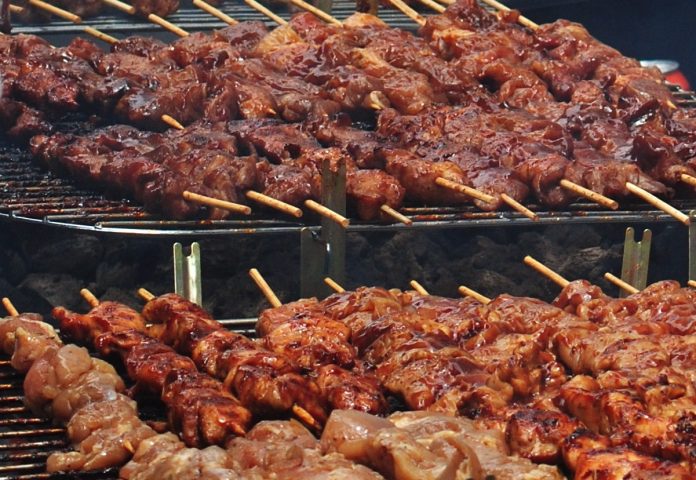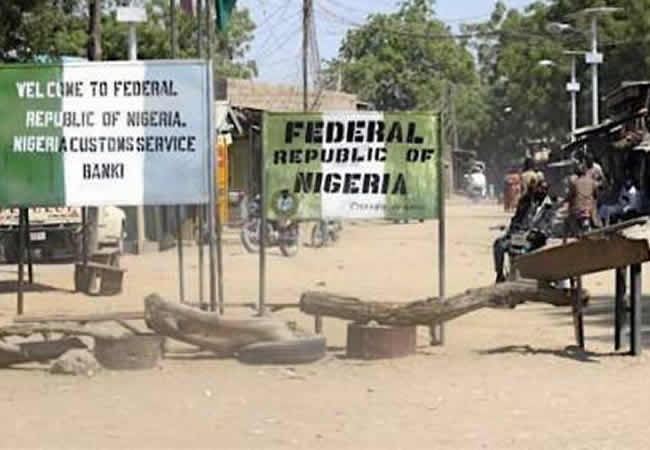Commercial activities in border communities of Katsina, Sokoto, Borno and Zamfara states have collapsed following the decision of the Federal Government to close all the country’s borders with the Niger Republic in the wake of the military takeover of power in the Francophone country on August 3.
Checks by our correspondents on the border communities in Katsina, Sokoto, Borno, and Zamfara within the week revealed that commercial activities in the communities have been paralysed with long lines of trucks loaded with goods still stranded at the borders. However, despite the heavy presence of security operatives, smuggling thrives across illegal borders in the states.
In the Jibia Local Government Area of Katsina State, residents expressed anxiety and anger at the low level of trading.
In Katsina State, aside from the Magamar-Jibia border post, another official border with the Niger Republic in Kwangolam (pronounced Kogolam) was equally closed.
A visit to Magamar-Jibia, Kogolam Maiyardua, Baure, Dankama, and Birni Kuka, among others, showed that economic activities were at the lowest ebb. The majority of traders in these communities now trade in farm produce such as yams and grains.
At Maiyardua, for instance, many traders have shifted from transborder trading to livestock, especially cattle, goats, and poultry. The presence of a cattle market seems to be the saving grace for the transborder traders in the community as no exports and importation businesses are taking place along the Kwangolam border post again.
Security operatives, including the policemen, officers of the Nigeria Customs Service and those of the Nigeria Immigration Service, still maintain their presence and checkpoints along the Kwangolam route.
Our correspondent encountered more than 10 such checkpoints from Daura to Kwangolam, which is a distance of 16 kilometres. The security operatives were, however, not harassing travellers.
Indeed, security operatives at the Nigeria/Niger Republic border control station at Kwangolam could be said to be on vacation as no activity was going on there. If not for the presence of some residents, who engage in the car wash business a few metres away from the border post and the rope put across the road at the main gate of the border post, one could easily mistake the place for another part of the town.
During an interaction with our reporter, residents expressed anger over the situation, saying the border closure had eroded their businesses and plunged them into penury.
Ado Usman, 42, said, “Before the border closure in August, I used to come to Kwangolam every day from Zango as I was selling any product brought in through the borders. The products were mainly rice, sugar, spaghetti, and milk. I had my customers then who used to come from Kano and from all over Nigeria because they knew that once they were here, they would get the product. But since the border closure, life has not been easy. Even when some of the products find their way here, they are too expensive for people to buy.
‘’Many of us now eke out a living by assisting people to buy and sell livestock at the Maiyardua Kara market. Many of us have even joined the Okada business to survive, while some of us have relocated to other big cities like Lagos, Ibadan, and Port Harcourt where we have friends and relatives to survive. Things are really hard here but we hope the border will be reopened one day.’’
In Magamar-Jibia and other surrounding communities, including Jibia and Daddara, trading activities are at a very low ebb. Many shops have been closed down while many traders are now trading in farm produce just as in Kwangolam.
Jibia town, which used to be a commercial hub, was a shadow of itself when The PUNCH visited the town over the weekend.
Many traders in Jibia who volunteered to speak after being assured of anonymity alleged that even before Nigeria closed her border with the Niger Republic, officers and men of the NCS were extorting money from traders bringing goods to Jibia from other parts of the country. The traders added that this had discouraged many traders from conducting trading activities in Jibia.
Husseini Mubarak, 45, whose shop is located in one of the markets inside Jibia town, said, “We are begging the Federal Government to reopen the border in Jibia. The border closure has made many of us poor. No business: nothing is coming in; nothing is going out. Many of us now sell yams and grains to survive since those items we used to trade in are no longer coming in. Those of us who have farms cannot even go to the farms again because of bandits. There is no single week that bandits don’t storm Jibia. Life is really terrible here now.”
At the border control post at Magammar-Jibia a few farmers were seen passing through on foot either on their way to or returning from their farms. Otherwise, the premises of the border post were completely devoid of activities.
The security operatives on duty, who spoke on the condition of anonymity, said they were not facing any harassment from residents.
The Chairman of Jibia Peoples Forum, Alhaji Gide Dahiru, insisted that the border closure had brought hardships on the residents and the traders in the local government. He implored the Federal Government to find an amicable solution to the problem in the Niger Republic.
He declared, “As patriotic Nigerians, we support every action taken by the Federal Government on the border closure. We, however, need to tell the truth that many people, especially traders, now focus on farm products. The closure has made many to close shops as there are no products coming again.
“The situation in Jibia is compounded by the activities of bandits. People cannot go to farms again as bandits would kidnap them and demand ransom before they are released. So, food is scarce; there are no trading activities in all our markets again. Even the local products brought from other parts of Nigeria do not easily get to Jibia because of extortion by security agents along the Katsina/Jibia highway.
“We are only appealing to the Federal Government to know that Jibia is a local government in Nigeria and people residing there are Nigerians. Although some of us have historical links with the Niger Republic, the fact still remains that we in Jibia are Nigerians and should not be allowed to die of hunger and poverty because of the border closure and the activities of bandits.”
The Chairman of the Katsina State chapter of the Civil Society Organisations of Nigeria, Mallam Abdurahman Abdullahi, also declared that the Federal Government should review the current border closure with the Niger Republic.
He said, “Border closure affects economic activities of communities neighbouring Niger Republic. This by extension leads to an increase in criminal activities in those areas as people’s sources of livelihood have been cut off. If you go to Magama Jibia, Kongolom, Baure, Dankama, and other Katsina State communities sharing borders with Niger Republic, you will shed tears. These places that used to be commercial hubs in the past are made dry by border closure. ”
The NCS Comptroller in charge of the Katsina Area Command, Muhammed Umar, has, however, met with stakeholders in 12 border communities in Katsina State where he urged them to discourage trans-border crimes and promote national security.
Smuggling booms at Zamfara’s 100 porous borders
Zamfara State has no border post officially constructed by the Federal Government to check smuggling activities.
However, there are over 100 porous borders between the Zurmi and Shinkafi Local Government Areas of the state that link the country with the neighbouring Niger Republic.
Checks by newsmen showed that there is free movement of goods and services to and from the neighbouring Niger Republic through these porous borders, a situation which explained that the border closure arrangement has collapsed.
At Gidan Jaja and Gurbin Bore towns in the Zurmi Local Government Area as well as other parts of the Shinkafi Local Government Area, vehicles and motorcycles were seen going out of the country to the Niger Republic and returning without any restrictions.
Essential commodities like rice and clothing materials are now imported to the country from Niger Republic through Gidan Jaja and other porous borders with little or no pressure from the security agents at checkpoints.
A businessman, who gave his name as Abdullahi Kaura, said Customs officers have now relaxed their activities with regard to the seizure of smuggled items unlike before when they pursued and arrested defaulters.
According to Abdullahi, Customs officers at checkpoints have stopped harassing people who import goods from Niger Republic, adding that, “business activities from the two neighbouring countries that have been crippled in the past as a result of the border closure have now returned to normal.”
Efforts to speak to Customs officers in the state proved abortive as none of them was ready to speak on the matter.
Sokoto’s Illela community is now a shadow of itself











